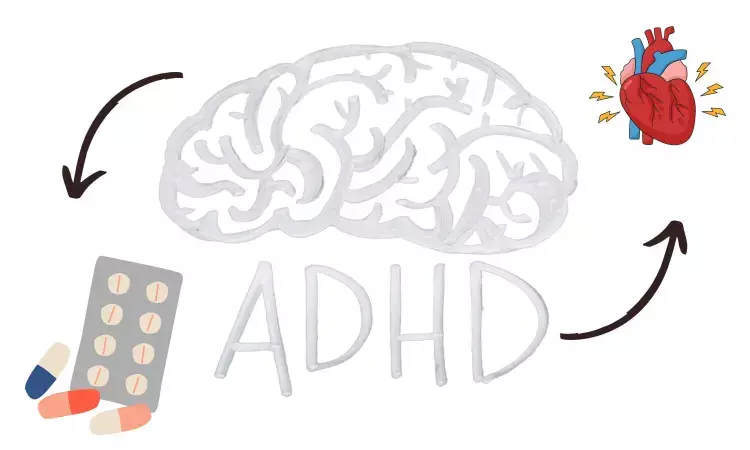- Home
- Medical news & Guidelines
- Anesthesiology
- Cardiology and CTVS
- Critical Care
- Dentistry
- Dermatology
- Diabetes and Endocrinology
- ENT
- Gastroenterology
- Medicine
- Nephrology
- Neurology
- Obstretics-Gynaecology
- Oncology
- Ophthalmology
- Orthopaedics
- Pediatrics-Neonatology
- Psychiatry
- Pulmonology
- Radiology
- Surgery
- Urology
- Laboratory Medicine
- Diet
- Nursing
- Paramedical
- Physiotherapy
- Health news
- Fact Check
- Bone Health Fact Check
- Brain Health Fact Check
- Cancer Related Fact Check
- Child Care Fact Check
- Dental and oral health fact check
- Diabetes and metabolic health fact check
- Diet and Nutrition Fact Check
- Eye and ENT Care Fact Check
- Fitness fact check
- Gut health fact check
- Heart health fact check
- Kidney health fact check
- Medical education fact check
- Men's health fact check
- Respiratory fact check
- Skin and hair care fact check
- Vaccine and Immunization fact check
- Women's health fact check
- AYUSH
- State News
- Andaman and Nicobar Islands
- Andhra Pradesh
- Arunachal Pradesh
- Assam
- Bihar
- Chandigarh
- Chattisgarh
- Dadra and Nagar Haveli
- Daman and Diu
- Delhi
- Goa
- Gujarat
- Haryana
- Himachal Pradesh
- Jammu & Kashmir
- Jharkhand
- Karnataka
- Kerala
- Ladakh
- Lakshadweep
- Madhya Pradesh
- Maharashtra
- Manipur
- Meghalaya
- Mizoram
- Nagaland
- Odisha
- Puducherry
- Punjab
- Rajasthan
- Sikkim
- Tamil Nadu
- Telangana
- Tripura
- Uttar Pradesh
- Uttrakhand
- West Bengal
- Medical Education
- Industry
Long-term exposure to ADHD medicine tied to greater risk of CVD: JAMA

Attention-Deficit/Hyperactivity Disorder (ADHD) is a psychiatric disorder with inattentiveness, impulsivity, and hyperactivity. Pharmacological therapy, including stimulants and nonstimulants, is recommended as first-line treatment. In the past decade, ADHD medication use has increased dramatically in children and adults.
According to an original investigation published in JAMA Psychiatry, a link between long-term ADHD medication use and an increased risk of cardiovascular disease. The risk increased with the duration of medication use and was statistically significant for children, youth, adults, and females and males. The main contributors to this association were hypertension and arterial disease. The risk was also tied to stimulant medication use.
There is a lack of data regarding the potential risk of CVD with long-term ADHD medication use. This Swedish case-control study of 278,027 individuals aged 6 to 64 answered this background.
This case-control study included individuals who received ADHD diagnosis or medication dispensation between January 1, 2007, and December 31, 2020. Data were obtained from the Swedish National Inpatient Register and the Swedish Prescribed Drug Register. Cases included individuals with ADHD and an incident CVD diagnosis. Incidence density sampling matched cases with up to 5 controls without CVD based on age, sex, and calendar time. Cases and controls had the same duration of follow-up.
Key findings of the study are:
- Of 278 027 individuals with ADHD, 10 388 with CVD were identified and matched with 51 672 control participants without CVD.
- The Median (follow-up time was 4.1 years.
- Longer cumulative duration of ADHD medication use was associated with an increased risk of CVD than nonuse.
- The AOR for 0 to ≤1 year; 1 to ≤2 years;2 to ≤3 years; 3 to ≤5 years and > five years was 0.99, 1.09, 1.15, 1.27 and 1.23, respectively
- Longer cumulative ADHD medication use was associated with an increased risk of hypertension and arterial disease.
- Across the 14-year follow-up, each 1-year increase in ADHD medication use was associated with a 4% increased risk of CVD.
- This risk was more significant in the first three years of cumulative use, with an AOR of 1.08 and stable risk over the remaining follow-up.
They said in our study, we found that the risk of CVD is greater with long-term exposure to ADHD medications.
Our study highlights the importance of carefully weighing potential benefits and risks when making treatment decisions about long-term ADHD medication use. Clinicians must continually monitor cardiovascular indicators during treatment, according to our findings.
Reference:
Zhang L, Li L, Andell P, et al. Attention-Deficit/Hyperactivity Disorder Medications and Long-Term Risk of Cardiovascular Diseases. JAMA Psychiatry. Published online November 22, 2023. doi:10.1001/jamapsychiatry.2023.4294
BDS, MDS in Periodontics and Implantology
Dr. Aditi Yadav is a BDS, MDS in Periodontics and Implantology. She has a clinical experience of 5 years as a laser dental surgeon. She also has a Diploma in clinical research and pharmacovigilance and is a Certified data scientist. She is currently working as a content developer in e-health services. Dr. Yadav has a keen interest in Medical Journalism and is actively involved in Medical Research writing.
Dr Kamal Kant Kohli-MBBS, DTCD- a chest specialist with more than 30 years of practice and a flair for writing clinical articles, Dr Kamal Kant Kohli joined Medical Dialogues as a Chief Editor of Medical News. Besides writing articles, as an editor, he proofreads and verifies all the medical content published on Medical Dialogues including those coming from journals, studies,medical conferences,guidelines etc. Email: drkohli@medicaldialogues.in. Contact no. 011-43720751


